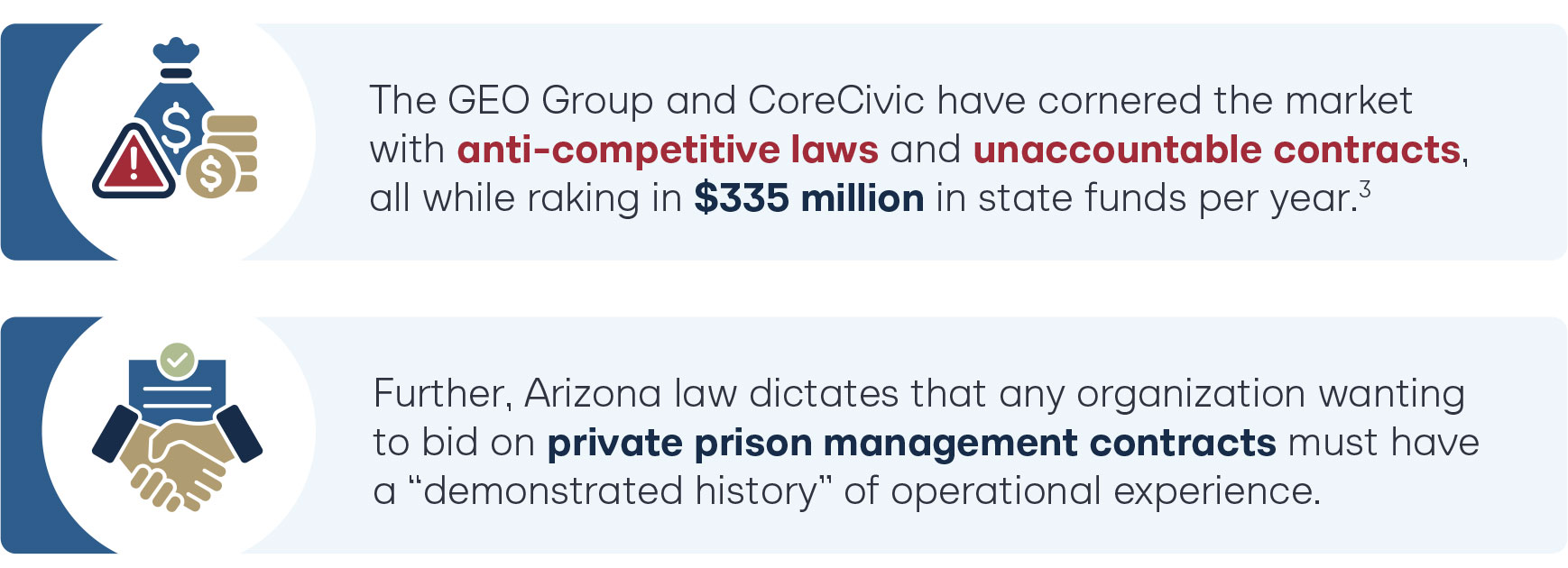
Private Prison Reform in Arizona
Rather than rewarding rehabilitation and success, Arizona’s guaranteed
minimum occupancy payments to private prison operators incentivize cutting
corners and warehousing inmates at the lowest possible cost.
Private prisons in Arizona hold 9,738 inmates, or 28.8 percent of the state’s prison population,1 in six facilities operated by either The GEO Group or CoreCivic.2



This means if a group of corrections professionals starts a new business to challenge the legacy operators, Arizona law forbids the state from even considering their proposal. This makes it effectively impossible for new operators to enter the market, stifling competition.
It’s time to introduce accountability for private prisons through competition and contract reform.
THE SOLUTION
Performance-based contracts pay operators more if inmates recidivate less and become employed. Arizona should rebid all contracts to be based on performance, aligning contract incentives with the success of the state correctional system.
Arizona must also repeal the demonstrated history requirement and allow competitive start-ups to challenge legacy companies.
WHY IT MATTERS

Basing contract terms on measurable outcomes would refocus criminal justice on effective rehabilitation, which would set incarcerated individuals up for success and improve community safety.
THE BOTTOM LINE:
Arizona’s private prison operators need more competition and accountability to better serve the people of the Grand Canyon State.
Arizona needs to:

Repeal anti-competitive laws in private prison contracts
and let the market work.
Hold prisons accountable—Introduce performance-based contracts that pay prisons based on the results they achieve, aligning incentives with the goals of the state correctional system.

Stay Informed
Sign up to receive updates about our fight for policies at the state level that restore liberty through transparency and accountability in American governance.